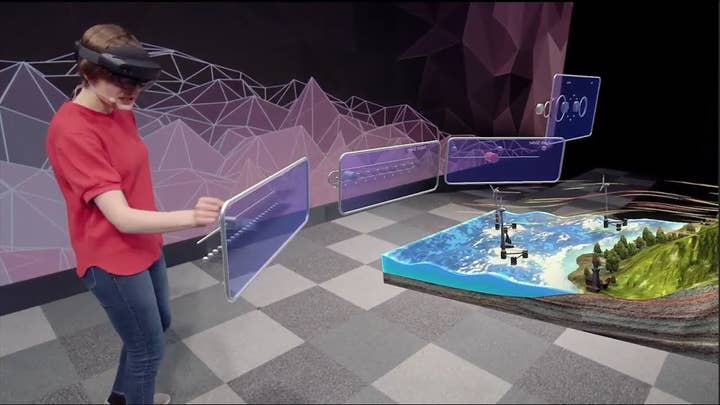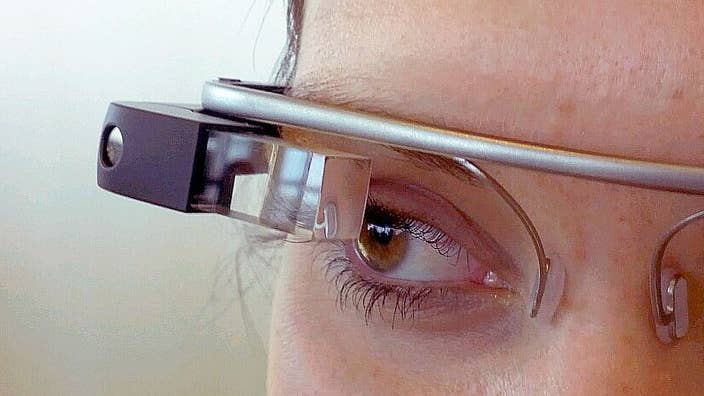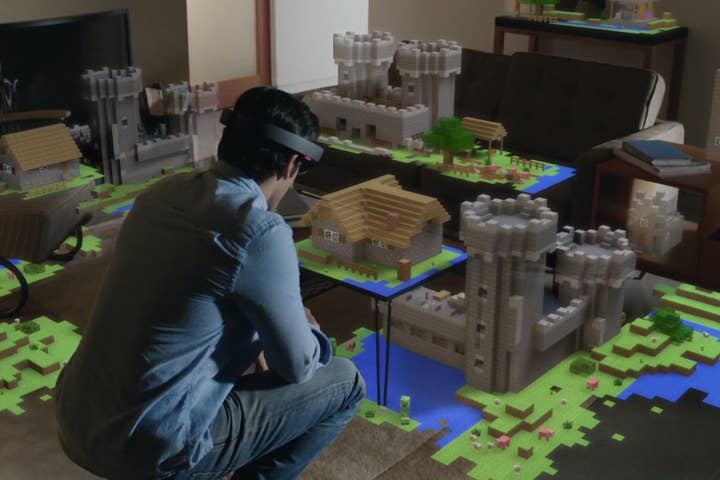The AR revolution creeps closer | Opinion
Augmented Reality has been “a few years away” for around a decade now - but with major tech firms lining up real product launches, the countdown has started in earnest
For much of the current decade, every single year was declared to be the eve of VR's ascendency. The big breakthrough, the headsets and the software that would finally bring this technology surging into mainstream adoption was always coming next year, like a desert mirage promising water on the horizon that never really gets any closer.
It's been a while, though, since we heard that claim; bold predictions about VR have been sobered by the harsh reality that even with decent-quality headsets and some pretty good software, it turns out that VR in its current form simply isn't something most consumers are excited enough about to push them over the barriers to entry.
"Adapting to smartphones was hard; AR will be harder. Yet the pot of gold at the end of that rainbow is so tantalising, it's impossible not to chase after it"
If VR has been tested and found somewhat wanting (for now -- all bets are off when new technologies enter the space, as they inevitably will), AR remains a tantalising prospect that's eternally even further over the horizon. The same expectations that VR's boom was coming next year... next year... no, next year, for real this time -- these were almost always paired with equally confident predictions that AR glasses would hit the mainstream just three or four years later. Even as VR has settled back into something more like a holding pattern -- it's not going away, but it's not the boom many had hoped for either -- the excitement over AR continues to build apace, both in the games sector and far beyond.
It's hard not to be a little cynical about a technology that's been held out as being just over the horizon for such a long time -- but it's far harder to deny the real potential of AR. The concept itself overcomes one of the key problems with VR, whose very selling point -- total immersion -- actually turned out to be a weakness as it became clear how few consumers are willing to spend much time so completely cut off from their physical surroundings. AR builds on your experience of the world around you rather than cutting you off from it, a distinction which creates almost limitless potential for the technology -- while also creating significant additional technical challenges over and above those VR has struggled with thus far.

The line-up of companies addressing those challenges is at least promising; this week we got some fairly solid confirmation that AR technology is Apple's next big thing, with a mixed AR/VR headset supposedly coming in 2022 and a more lightweight set of AR glasses arriving a year later (see, AR is always about three years away).
Microsoft has been more open about its plans, evolving its Hololens AR platform in the public eye, albeit with a focus (for now) pretty strongly on professional applications and a little Minecraft thrown in for good measure. Facebook, of course, has Oculus, which is heavily VR-focused but no doubt has AR devices on its internal roadmaps.
Google has been a little more muted on its AR plans ever since Glass was so poorly received by the public (which has been instructive in its own way, and no doubt every other firm is considering that backlash in their own product development), but Glass continues to be worked on with a view to professional applications and Google no doubt has ambitions in the consumer space too.
"The list of things we don't know about AR is a far longer list than the list of things we do know"
That's a who's-who of the biggest tech companies in the world, more or less -- and that's even before we count smaller competitors like Snap or MagicLeap who reckon AR could be their chance to shine. The exact timeline for AR's mainstream adoption is still hard to pin down, but we're getting to the point where betting against it being the next big trend in technology is looking downright foolhardy.
Games are going to play a big role in this trend -- partially because AR gear is going to be expensive to begin with, and pushing it as gaming hardware is likely to appeal to the kind of early-adopter market who will pay a premium, but also simply because games are likely to be killer apps for AR hardware adoption overall. Indeed, while lots of developers have been creating AR apps for smartphones in recent years, the only one that's really made waves has been a game, Niantic's Pokemon Go -- a fact that won't have escaped the attention of the tech giants hoping to make AR into their next big push.
One interesting aspect of Apple's efforts in this field is that they are very much led by software rather than hardware, with the company putting a lot of effort into getting the ARKit platform up to scratch long before it will have any actual headset or glasses. An interim step before the headset is expected to be building better 3D sensing systems into iPhones and iPads in order to make ARKit even better at integrating AR objects into the real world. Much of that push is being focused on game developers. A truly breakout game that fully uses the real-world integration aspects of ARKit is yet to arrive, but it can only be a matter of time.

The opportunity of a whole new platform -- perhaps the first really big change to consumer technology since the smartphone -- should not blind us, however, to the challenge posed by AR for game creators. This is going to be an order of magnitude harder to get to grips to than smartphones were, not least because smartphones had a pretty clear progenitor -- the original iPhone -- which remains the template for interaction and design for everything since then.
It took a long time to figure out how to make mobile games really work for players, and that was despite the relatively fixed nature of how smartphones look and function. AR, by comparison, will be a moving target; its viewports divided between various kinds of headsets, glasses, phone and tablet screens; its control interface still entirely up in the air; the very question of what consumers want to do and to what extent they're okay with a game encroaching on their reality is one to which there is no good answer right now.
This bears repeating. Even with Apple's putative products on the horizon (and ARKit is a real thing now!), even with the ability to sign up and get a working Hololens device, the list of things we don't know about AR -- aspects of what it will be, how it will work and what people will want to do with it -- is a far longer list than the list of things we do know.
I'm no longer a cynic about the timescale for AR; I think we will almost certainly have some consumer-ready devices that the general public is pretty excited about within the next four to five years, and don't expect that timespan to slip back much further. I don't think, though, that we should underestimate how much work is going to be involved in figuring out how to make this sector actually work for consumers -- and how much time and money is going to be lost on false starts and ideas that just don't click with the market.
Adapting to smartphones was hard; this will be harder. Yet the pot of gold at the end of that rainbow is so tantalising, it's impossible not to chase after it; if all goes well with AR, it'll have an impact even greater than smartphones on how we live, work -- and play.

